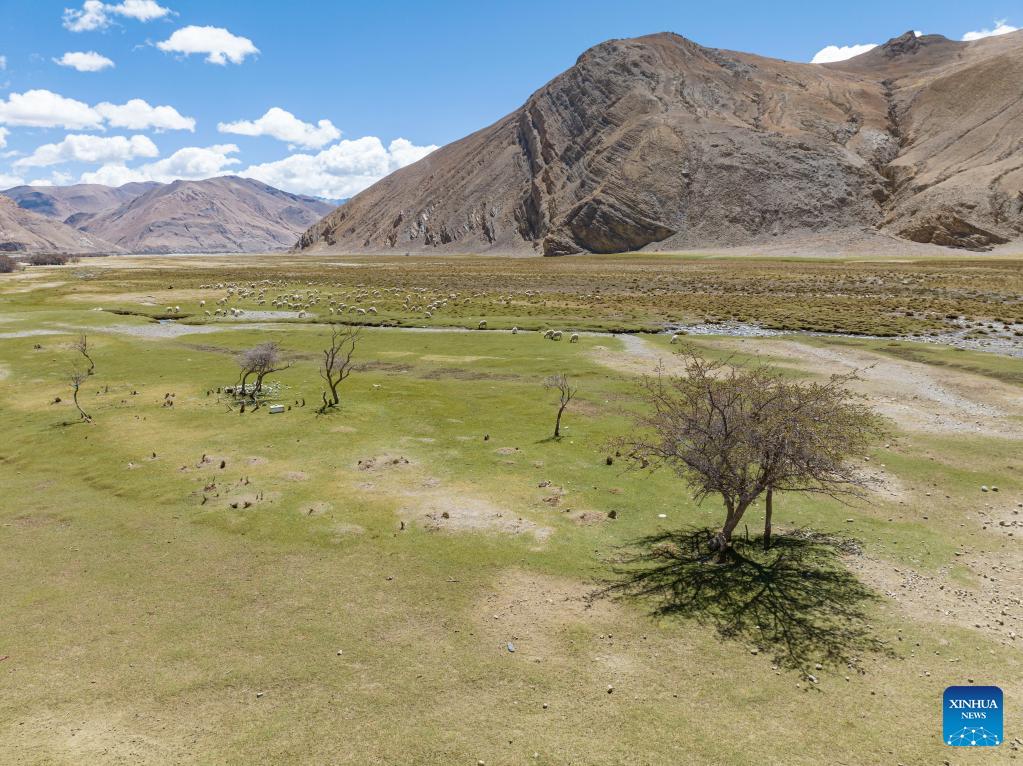Mt. Qomolangma region witnesses improving ecological environment: experts
 0 Comment(s)
0 Comment(s) Print
Print E-mail Xinhua, May 26, 2023
E-mail Xinhua, May 26, 2023

This aerial photo taken on May 25, 2023 shows wetlands in Qomolangma National Nature Reserve, southwest China's Tibet Autonomous Region. [Photo/Xinhua]
The ecology of the Mount Qomolangma region continues to improve, as China has made progress in ecological and environmental protection over the years, experts have said as scientific research on the world's highest peak continues.
"Through the analysis of the snow samples from Mount Qomolangma, it is found that solid pollutants have little impact on the environment of the mountain," said Kang Shichang, a researcher at the Northwest Institute of Eco-Environment and Resources under the Chinese Academy of Sciences.
Kang said it is inevitable that glaciers will retreat globally as the climate warms. However, glaciers in the Mount Qomolangma region and on the Qinghai-Tibet Plateau have retreated more slowly than in other parts of the world.
An increase in the number of snow leopards -- a rare species under first-class state protection in China -- in the Qomolangma National Nature Reserve also reflects the healthy development of the ecosystem of the region, according to the forestry and grassland bureau of the Tibet Autonomous Region. Preliminary estimates put the population of snow leopards in the reserve area at more than 100.
Covering an approximate area of 33,800 square kilometers, the reserve is home to one of the world's most vulnerable ecosystems. Established in 1988, the reserve has protected well the representative ecosystems and natural environment in Tibet, including habitats for rare and endangered species, wetlands where birds migrate, and natural landscapes, geological relics and biological fossils.
The 2023 Mount Qomolangma expedition is part of the second comprehensive scientific expedition to the Qinghai-Tibet Plateau, which was initiated in 2017. Since the end of April, a total of 170 scientists have been conducting research on the water, ecology and human activities around the Mount Qomolangma region.






Go to Forum >>0 Comment(s)